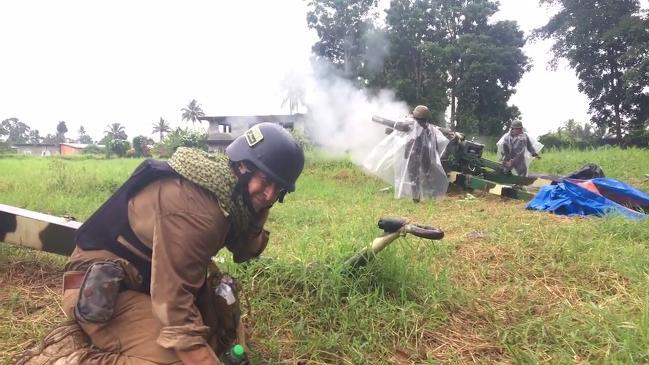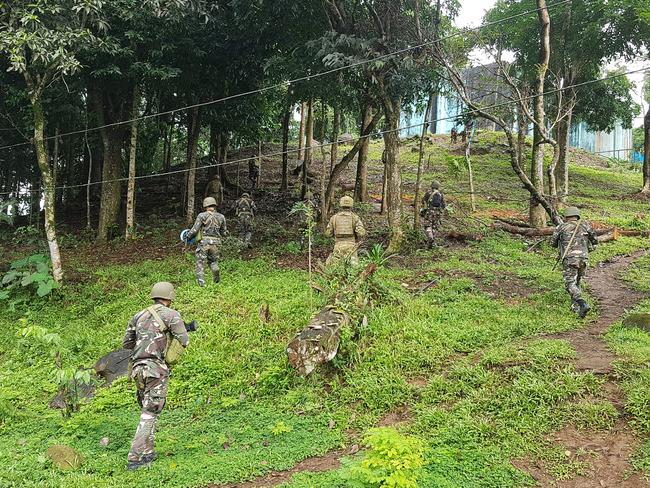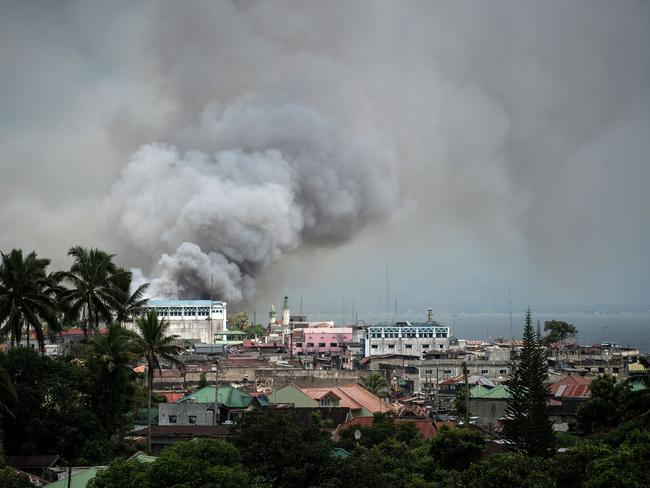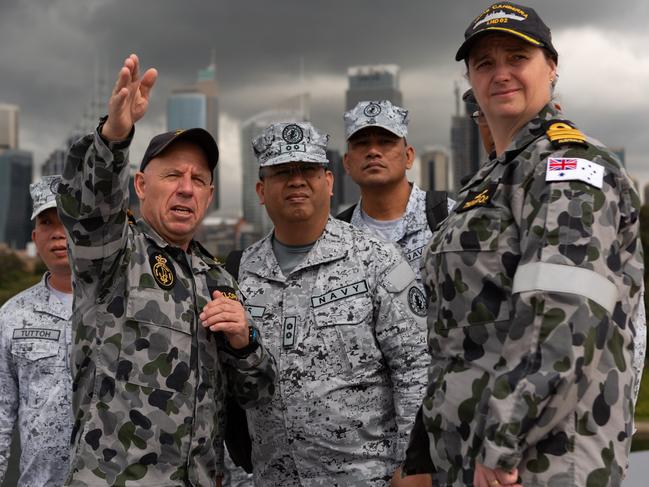Australian Defence Forces move on militant Islamic extremists in Asia
Australia’s military operation is afoot against Islamic State’s latest recruitment drive, which is happening on our front door step.

Crime in Focus
Don't miss out on the headlines from Crime in Focus. Followed categories will be added to My News.
Almost five years after a short but bloody conflict in the Philippines ended Islamic State’s quest for a South East Asia stronghold, authorities have warned the terror group has rekindled recruitment for a new regional holy war.
And the push is seeing the Australian Defence Force (ADF) looking to take a leading role to put down the threat including quietly deploying Special Forces and intelligence advisers to the region to train for and combat the movement of militants and weapons.
But unlike the ADF’s much trumpeted deployment to the Philippines five years ago, its latest engagement has gone dark and is not for public disclosure.

In May 2017 more than 700 pro-ISIS fighters including some battle trained in the Middle East seized the largely Muslim Filipino city of Marawi sparking a bloody war that would leave 1200 dead including at least 50 innocent civilians.
The five-month conflict displaced 360,000 people; the UNHCR has reported more than 21,000 people remain displaced in transitory sites.
The Filipino military had battled militant Islamic extremists in the jungles for decades but had limited combat experience in urban settings, prompting ADF Special Forces sometime after to assist in supporting and advising local troops.

Australian RAAF spy planes, at the request of the Filipino government, were already flying surveillance missions over the besieged city and region to provide intelligence for the fight.
Authorities now fear the fall of Afghanistan to the Taliban could prompt some extremists notably from Pakistan to renew a push for a new caliphate in South East Asia.
ISIS’s focus shifted to South East Asia as they were being routed in the Middle East and on the cusp of losing its self-declared capital Raqqa in Syria, prompting fighters to flee.
Most arrived in the Philippines via Turkey on commercial flights, prompting Australian Border Force officers to dispatch to Manila as a last line interdiction should the route be used by ISIS fighters or supporters to return to Australia.

Late last year Filipino authorities came across a training video being distributed notably about the restive Mindanao region and in September raided a home of a 29-year-old man identified as a key ISIS recruiter.
Intelligence points to training camps and hideouts in the province of South Cotabato in Mindanao; last year five members of the ISIS-affiliated Ansar al-Khilafah Philippines (AKP) groups were killed in raids in South Cotabato.
The ADF’s 2017/18 Operation Augury 100-troop deployment was one of Australia’s most significant to an active conflict in the region since East Timor in 1999. Australian military and intelligence counter terrorism authorities have long feared a South East Asian Raqqa being established about Mindanao and the islands in the Sulu Sea taking in militants from Indonesia notably about North Sulawesi, Malaysia and Borneo.

The once heralded Augury – which means reading signs of an omen – had been a standard military training operation for the Philippines but has since been expanded and is now declared sensitive and secret by the ADF.
It is now badged Operation Augury-Global and according to the ADF is conducting counter terrorism operations “in Australia’s interests” to guard against “the spread of violent extremism to the Indo-Pacific region”.
“Specific tasks under Operation Augury-Global will generally not be publicly disclosed for operational security reasons,” Defence said.
It is understood there are 40 Augury-related ADF personnel in the Middle East region, notably in Jordan and Iraq.
Originally published as Australian Defence Forces move on militant Islamic extremists in Asia



